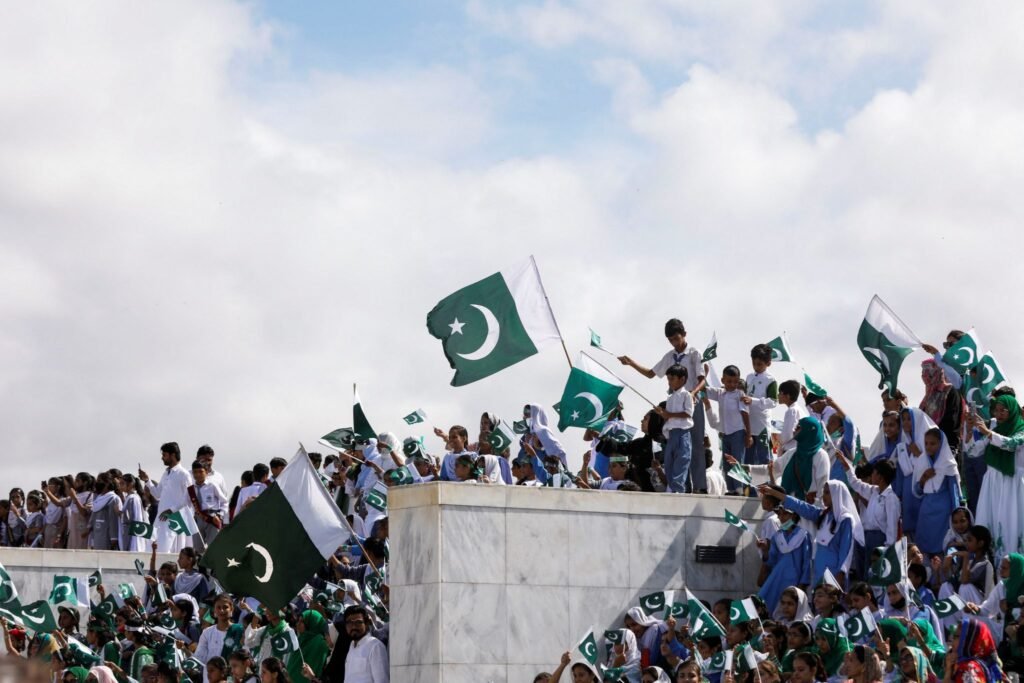
Pakistan is currently witnessing record-breaking rains and catastrophic flooding across regions, with some parts being subjected to torrential downpours, the heaviest in more than seven decades since the country’s inception but yet the talk of the town has been Imran Khan and his party’s antics and the response given by the ruling Federal government rather than the calls for help from the many millions affected by floods. This eventually compelled the country’s de facto ruler, the Pakistani Army, to intervene due to the absence of functioning government institutions that are embroiled in political squabbles, thereby legitimising the Army as the only functioning institution and a benign power that comes into play at times of crisis. Such actions unfortunately generate scepticism among citizens about the functioning of the state and the competence of the political elites that run it.
A portion of the responsibility for the ongoing political imbroglio can also be assigned to the judicial rulings that have served as catalysts for its escalation. Initially, the crisis began at the federal level and then expanded to the province of Punjab when Imran Khan, in an effort to save his position as Prime Minister, requested his party members to cede the position of Chief Minister in Punjab to a junior partner, the PML-Q in exchange for the latter’s support at the national level. This action led to a series of strange legal decisions about who the rightful leader of the state of Punjab was, based on different interpretations of Article 63-A of Pakistan’s constitution. In the end, the PTI got back into power in Punjab because of these decisions.
During the political bickering, the nation faced a new balance of payments crisis, bringing it to the verge of economic collapse. The ruling coalition led by Shahbaz Sharif was able to cobble a majority in the national legislature and initiate a number of administrative, political, and economic reforms with the backing of the ‘establishment’. First, the coalition successfully negotiated the country’s removal from the FATF’s grey list (until physical verification) and resumed talks with the International Monetary Fund which had been suspended after Imran Khan’s PTI administration reneged on obligations to the IMF. This led to a series of harsh measures initiated by the Finance Minister, including an increase in the rate of petroleum products and electricity, a ban on the import of certain commodities etc. all of which were conditions for receiving a new bailout package.
This series of initiatives has resulted in the nation’s highest inflation rate in four decades, much to the public’s displeasure. The effect of these measures was evident in the thumping majority that Imran’s PTI received in the Punjab assembly’s by-election, as it managed to echo the sentiments of the general population and launched a tirade against the ruling coalition, labelling it “imported’ and working at the behest of the IMF and foreign governments which colluded in removing the PTI from power. Instead of defending their actions which at least saved the country from bankruptcy, the PML-N-led coalition is mired in an internal political dispute following the losses in Punjab, which are mostly attributed to the reformist measures of the Finance Ministry. Nawaz Sharif, PML-N’s supremo, oddly advocated for early elections in an effort to solidify his party’s hold on power and then launch extensive reforms. This was because the PML-N’s senior leadership was concerned about losing the support of the majority while struggling with Imran Khan’s dismal economic legacy, which necessitated a number of economic reforms to help the nation avoid another financial disaster.
At that point came the Election Commission of Pakistan’s (ECP) declaration on the prohibited funding case, which found PTI to have received money from foreign sources and Imran Khan to have deliberately misrepresented his funding source, an unlawful act according to the Pakistani constitution. In a similar manner, Nawaz Sharif had been disqualified from political office a few years earlier for failing to declare earnings from a firm held by his son in the United Arab Emirates. The ruling coalition is demanding that Imran Khan be punished the same way. There is a threat of disqualification hanging over Khan’s head after the ECP’s ruling, but it is unlikely to have any effect on his popular appeal. The verdict was handed down seven years after the inquiry began, but immediately after Khan’s departure, which has prompted further speculation about the political agenda behind the ruling. Yet, it is unclear if Khan’s political posturing and appeal will be enough to successfully rally behind his supporters for winning elections and coerce the establishment’s power structures to accept his return as Prime Minister. Imran Khan has been exerting pressure on the Election Commission and the Federal government by rallying his followers around the demand for holding fresh elections in the entire nation.
To reclaim lost seats again from the PTI, the ruling coalition would need to team up as shown in the last round of bye-elections in Punjab where the ruling coalition lost ground in part because it failed to organise PML-N supporters in support of PTI dissenters. It is probable that the PML-N-led coalition’s political prospects will suffer as a result of the need to introduce new taxes in order to meet the requirements of the International Monetary Fund and similar lenders. Imran Khan has been persistent in criticizing the current administration for the country’s economic hardship, irrespective of the fact that the PTI administration brought about the collapse by investing significantly in unsustainable welfare programmes and even dared to sabotage the hard-earned IMF deal recently through his ministers in Khyber Pakhtunkhwa and Punjab assemblies. Unfortunately, a solution remains elusive as November approaches and suspicions persist that the prevailing problem has its roots in a struggle around the selection of the new army chief. However, as the detention of Imran Khan’s chief adviser, Shahbaz Gill, for reportedly encouraging rebellion in the army suggests, establishing an alternative course of action may be challenging for most political groups.






Add comment